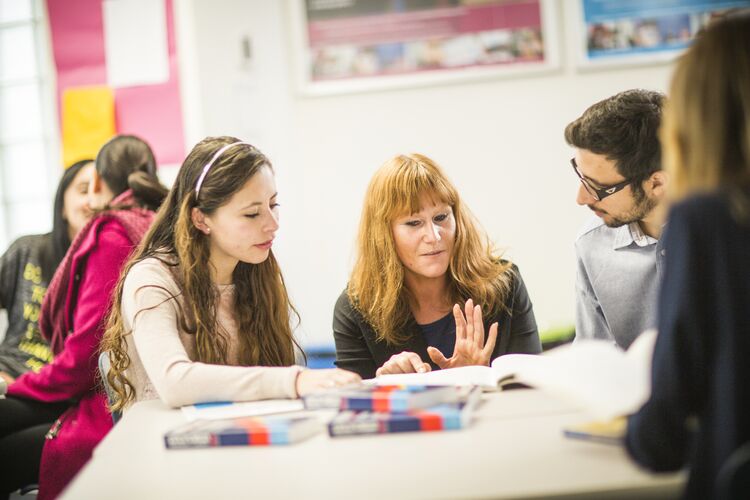
5 - 8
9 - 12
13 - 17
Adults
B1
10
Here are some tips to
- shift the task focus from you talking to them (they have to talk to each other).
- give them control of their own discussion.
- give them practice in formulating their opinions within a controlled framework.
Discussion envelopes
- Make a list of issues or topics which your students might find interesting. Think of seven or eight statements on each issue which represent typical and widely opposing comments on the topic. For example:
- Topic: Are boys and girls the same?
- Girls naturally want to play with dolls.
- Boys are usually better at science subjects than girls.
- Topic: Are boys and girls the same?
- Photocopy each list of statements on different topics and put them in 3-4 envelopes.
- Divide the class into small groups. Tell them the title of each topic.
- Each group selects an envelope. They work through the topic in their group, taking turns to read aloud the statements found in the envelope and inviting comment and opinions.
- You can ask each group to record their reactions to the issues for feedback at the end of the session.
- Re-use the envelopes in another lesson. Each group chooses a new topic and envelope.
Listen and react
- Put students in small groups of 3 all facing each other.
- Act as conductor by reading aloud a statement on a list, one at a time.
- After each statement students have one minute to react in their group to what they have heard, disagree, agree, comment etc.
- Stop them talking after a minute (with gong, whistle, clap) and read the next statement on your list.
- Students hear you but must look at each other and tell each other what they think!
Read and modify
- Give a list of statements on a set topic to each group in the class.
- Students must work through the statements and modify them to reflect their views as a group. This involves discussion on how they will re-word the sentence or add a further clause to justify their position. For example:
- Topic: The school year
- Statement: School holidays are too long.
- Students’ modified sentence: We think school holidays are not long enough.
- Topic: The school year
- Use the feedback session at the end of the lesson to hear some of the “new” statements that each group has created.
These activity ideas originally appeared on the British Council Language Assistant website.